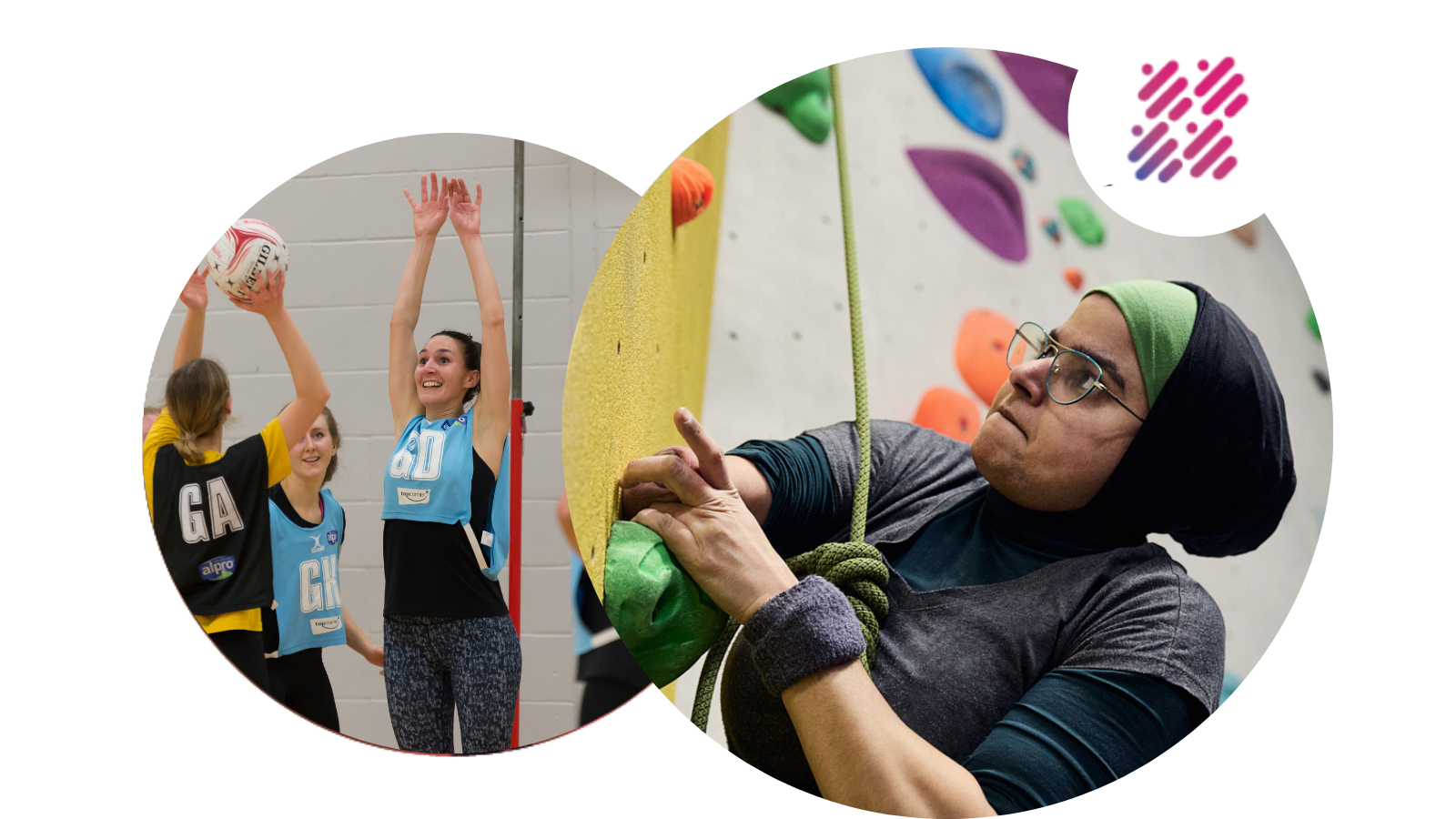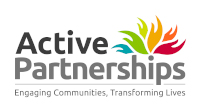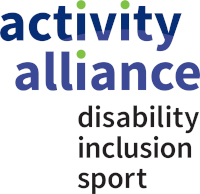The Activity Trap: Benefits or being fit?

New research shows almost half of disabled people fear losing benefits if they take part in exercise.
Almost half of disabled people (47%) fear losing their benefits if they are seen to be physically active, according to new research published by Activity Alliance.
The research is particularly important as disabled people count for one in five of Britain’s population, almost 14 million people.
However, they are currently the least active group in society, and twice as likely as non-disabled people to be inactive. The study, entitled ‘The Activity Trap: Disabled people’s fear of being active’, shows that four in five disabled people would like to be more active (83%).
Respondents’ reasons include that it enables them to manage impairments, pain, and to maintain and improve physical and mental health. Almost two thirds (65%) of disabled people who participated in the study said they rely on benefits to be active. Without this financial support, they would not be able to afford travel, paid-for exercise and the specialist equipment needed to be active. However, almost half of those who responded (48%) fear being seen as “too independent” for a disabled person. This could see them lose access to the benefits they need such as the Personal Independence Payment (PIP), Disability Living Allowance (DLA) and the Employment and Support Allowance (ESA).
Some participants in the study told Activity Alliance that they live in fear of having their benefits taken away and worry about being reassessed, even if their reassessment date is years away.
Alan Ringland, is chairman of the Birmingham Ability Counts League, the largest league of disabled footballers in England. Alan, a qualified coach and referee said the league had 455 players three years ago and now only has only 250, with many people dropping out because they have lost benefits after PIP assessment. The 62-year-old, whose sons both represented England in disability football teams, said:
I’ve seen players who have lost their PIP and aren’t able to attend anymore. When you see them again you see that they’ve not been as active as they were, often they have put on weight and over time their health may deteriorate. Playing football on a Sunday was one day where they really enjoyed themselves and if they don’t take part anymore they can lose confidence, friendships, and the camaraderie that goes with that. In many cases, sport is the only regular social activity in their lives, and taking that away can have a massive impact.”
These experiences resonate deeply with former British wheelchair athlete Carly Tait, who has cerebral palsy and took part in the 2016 Rio Paralympics. Carly, from Wythenshawe in Manchester, was told she would lose her adapted car four months before she was due to fly to Rio for the Paralympics. This came after being assessed for PIP in February of that year. The 32-year-old, who had access to a car for 12 years under the Motability charity scheme needs the car for work and when in training used to attend two training sessions a day with local club Stockport Harriers. Now eight months pregnant with her first child, Carly already lives in fear of having to undertake her next PIP assessment in eight years’ time. Carly said:
When I was assessed for PIP in 2016 and found out that I was going to lose my car, the bottom fell out of my world. I was distraught and couldn’t focus on my training – I couldn’t even get around the track without breaking down in tears. It was an extremely distressing time in my life, and despite the fact that my next assessment is eight years away, it’s already causing me stress just thinking about what might happen. Being active means I can manage my disability better; I have more energy, am more confident and all-round I’m a lot happier in myself. Without the financial support that I received, I would never have been able to get myself to training twice a week. There are enough financial barriers to sport as it is, especially with the high costs of adapted equipment for some disabled people, without the additional fear of losing benefits. We need to give all disabled people the same rights to be active that everyone else enjoys – and end the activity trap now.”
Mik Scarlet, 53, has been a wheelchair user since his childhood, after complications from his cancer treatment resulted in paralysis. A TV broadcaster and journalist from Camden, who hosts a video blog on the benefits of sitting yoga, Mik said:
I had an awful experience with the award of my PIPs, which took a year of fighting to resolve and has taken a huge emotional toll. While my yoga blog has generally been well received, quite a few disabled people have contacted me saying they’d be concerned about trying it - in case they were considered fit enough to either work or receive a lower level of financial support. The Activity Trap report highlights the desperate situation for far too many disabled people in this country.”
Andy Dalby-Welsh, Deputy Chief Executive of Activity Alliance said:
Disabled people deserve the same right to be active as everybody else, no matter whether they want to make use of their local gym or become an elite athlete. But the stark reality is that disabled people are still twice as likely as non-disabled people to be inactive. This needs to change. That is why this rigorous, evidenced report has such an important role to play in changing the reality of disability, inclusion and sport. We need to understand the challenges and barriers that disabled people face on a daily basis. The numbers within the report, although shocking, give us a starting point for change. We want to work with and across government to make active lives for disabled people possible. We would urge policy makers within national and local Government to take on board the calls for action within this report and the spirit with which it was written. Let’s enable more disabled people to lead happier and healthier lives.”
Disabled people can find out more about the benefits of being active, who to contact and ideas on where and how to get started on Activity Alliance website, visit www.activityalliance.org.uk/get-active.
To download a copy of the report, visit: www.activityalliance.org.uk/activity-trap
Ends
Notes to Editors:
For more information or images please contact Chris Walker at Social Communications on chrisw@social-communications.co.uk or 07852 568625.
For further information on Activity Alliance, please contact: Sarah Brown-Fraser, Marketing and Communications Manager. Email sarah@activityalliance.org.uk or call 07764 291671.
The Activity Trap report
A study commissioned by the Dwarf Sports Association UK (DSAuk) and undertaken by FlexMR.
In this study, ‘benefits’ refers to both disability and health-related state benefits and other forms of government and NHS financial support. From 26 June to 17 July 2017, FlexMR undertook an online quantitative survey of 206 disabled people, primarily with physical impairments (89%), recruited through DSAuk, WheelPower, Cerebral Palsy Sport and Activity Alliance channels. Participants were either currently (96%) or previously (4%) in receipt of disability benefits and the survey was designed to secure some basic information about their activity levels and experience of benefits. 26 of these participants with physical impairments were recruited for a second, qualitative section of the study which ran from 24 July to 2 August. They answered questions about their experiences of disability benefits and physical activity in an online private ‘diary’ section and a question board in which answers were visible to other participants.
Latest news from Active Black Country
View all news
INSIGHT HUB
Timely data and learnings in relation to physical activity and sport in the Black Country and the added value we can offer.

WATER SAFETY PROGRAMME
Our Black Country Water Safety Programme has had a big impact since launching. Access our free resources for schools, community groups and parents & guardians to increase the number of children and families who are water safe and boost their enjoyment of swimming.

ACTIVATION ACADEMY
Resources and training material to support the Black Country sport & physical activity workforce.














